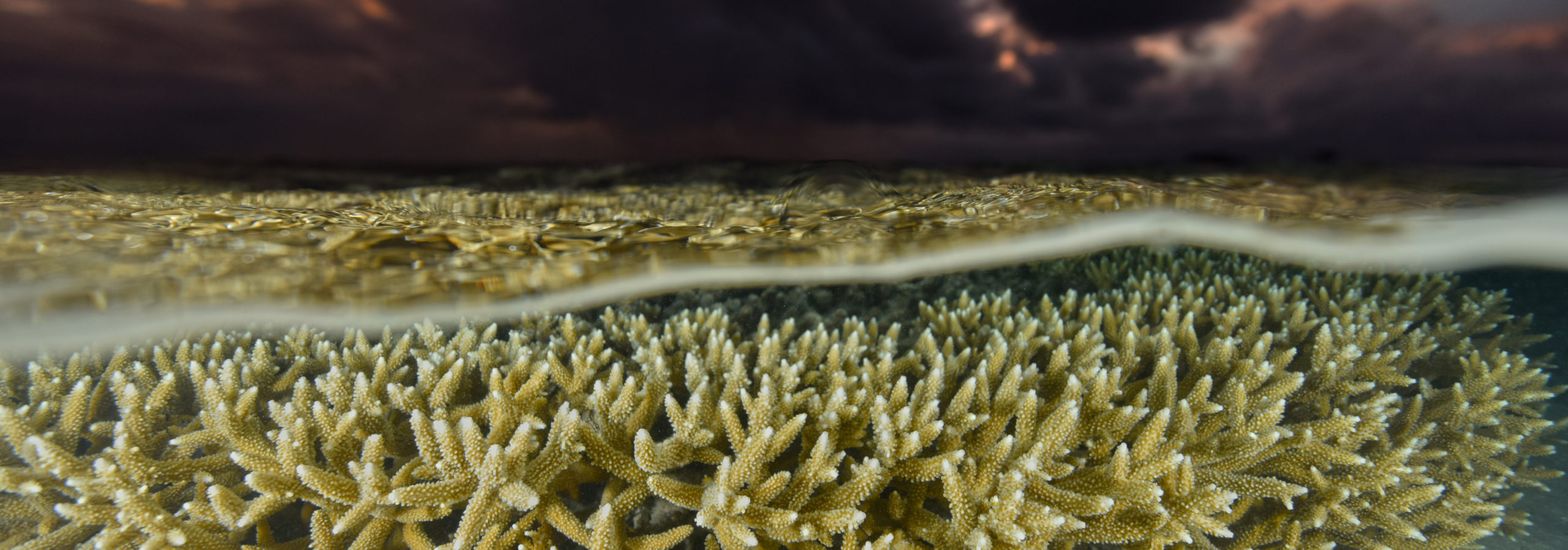
Matheus Mello-athayde
About
Dr. Matheus is a postdoctoral research fellow at The University of Queensland (UQ, Australia). Matheus is a marine biologist that has recently completed his Ph.D. at the Coral Reef Ecosystems Laboratory (CRE lab) and ARC Centre of Excellence Coral Reef Studies at UQ, under the supervision of A/Professor Dr. Sophie Dove, Dr. Selina Ward, and Professor Dr. Ove Hoegh-Guldberg. Matheus’s Ph.D. and current research focuses on the present and future coral biology and physiology under different reef environments and the impacts of ocean warming and acidification. Matheus graduated with a double degree in science: Bachelor of Science (teaching degree, 2008) and Bachelor of Biological Science with Honours (Marine Biology Major, 2009) from Santa Cecilia University, Brazil.
Matheus is a passionate and dedicated marine biologist, wildlife and underwater photographer. He grew up snorkelling the coast of Brazil, learning to appreciate and protect the ocean’s biodiversity. Since he was a teenager, he has been involved with marine science and started to work as an Aquarist and Marine Education Officer on the largest public aquarium in South America at the time (Acqua Mundo, Brazil).
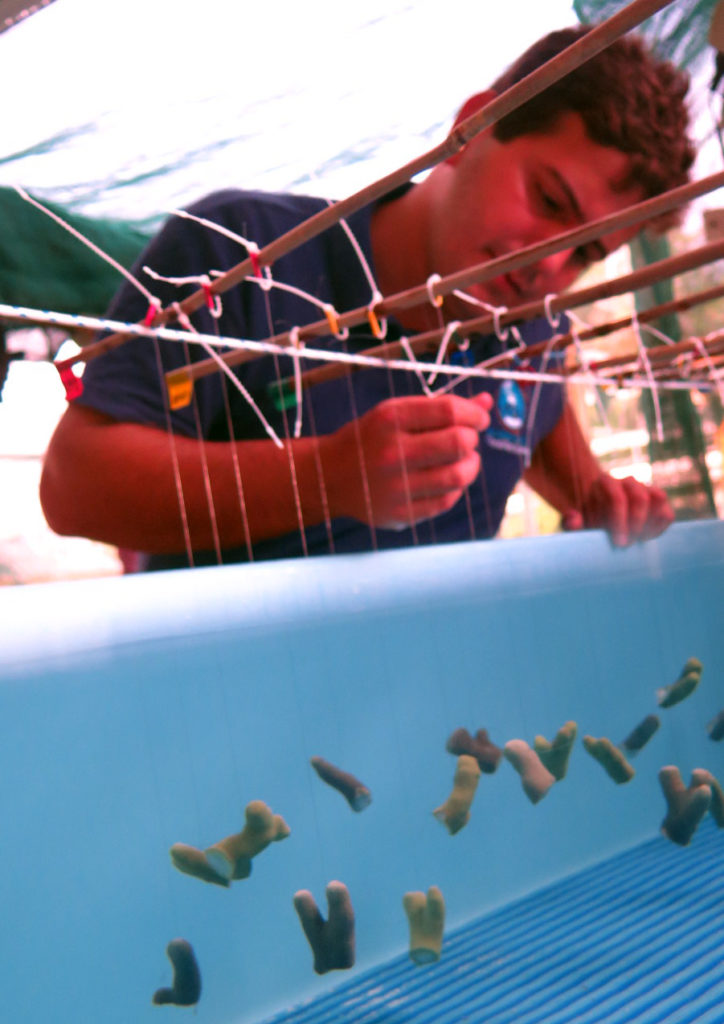
While undertaking his bachelor’s degree, he worked on different scientific projects, presenting the research outcomes at various conferences and symposiums. His work experience included biometric data acquisition and scientific identification on one of the most extensive collections of preserved sharks and rays in Brazil, at the centre of studies of Elasmobranchii, NUPEC. He contributed as a biologist on a centre of rescue and rehabilitation of marine animals at the Gremar Institute, Brazil. While at Gremar he worked on an educational outreach program funded by the Guarujá city council as a teacher for public high schools’ students. He also worked for the University of Sao Paulo as a marine educator and snorkelling guide on a marine ecology outreach project. Matheus had a passion for the zoology of invertebrates, his honours degree project focused on the ecology of rocky shore environments, which led him to start a work internship with corals reefs at the University of Sao Paulo.
In January 2011, Matheus joined the CRE laboratory where he had the opportunity to learn, design and perform field and laboratory experiments, field samples collection, data collection, statistical analyses, and statistical modelling. Matheus’s research collaborations ranged from DNA extractions to performing long term in-situ and laboratory experiments on different coral species and bioerosive sponges, with a goal to advance our knowledge on how the impact of climate change, such as increases in ocean temperature and acidification, will affect the coral reefs.
Matheus was awarded a full doctoral fellowship on a research project entitled “Porites cylindrica (Dana, 1846), a resilient coral found on the Great Barrier Reef: present and future coral physiology”. The overall aim of Matheus’s PhD thesis is to better understand how corals with different life-history respond to changes in the present and future abiotic environments. His PhD project utilized the state-of-the-art laboratory automated control system for studying the effects of ocean acidification and warming. His project was also one of the firsts to incorporate the newest automated underwater incubations system in order to measure in situ calcification and metabolic rates.
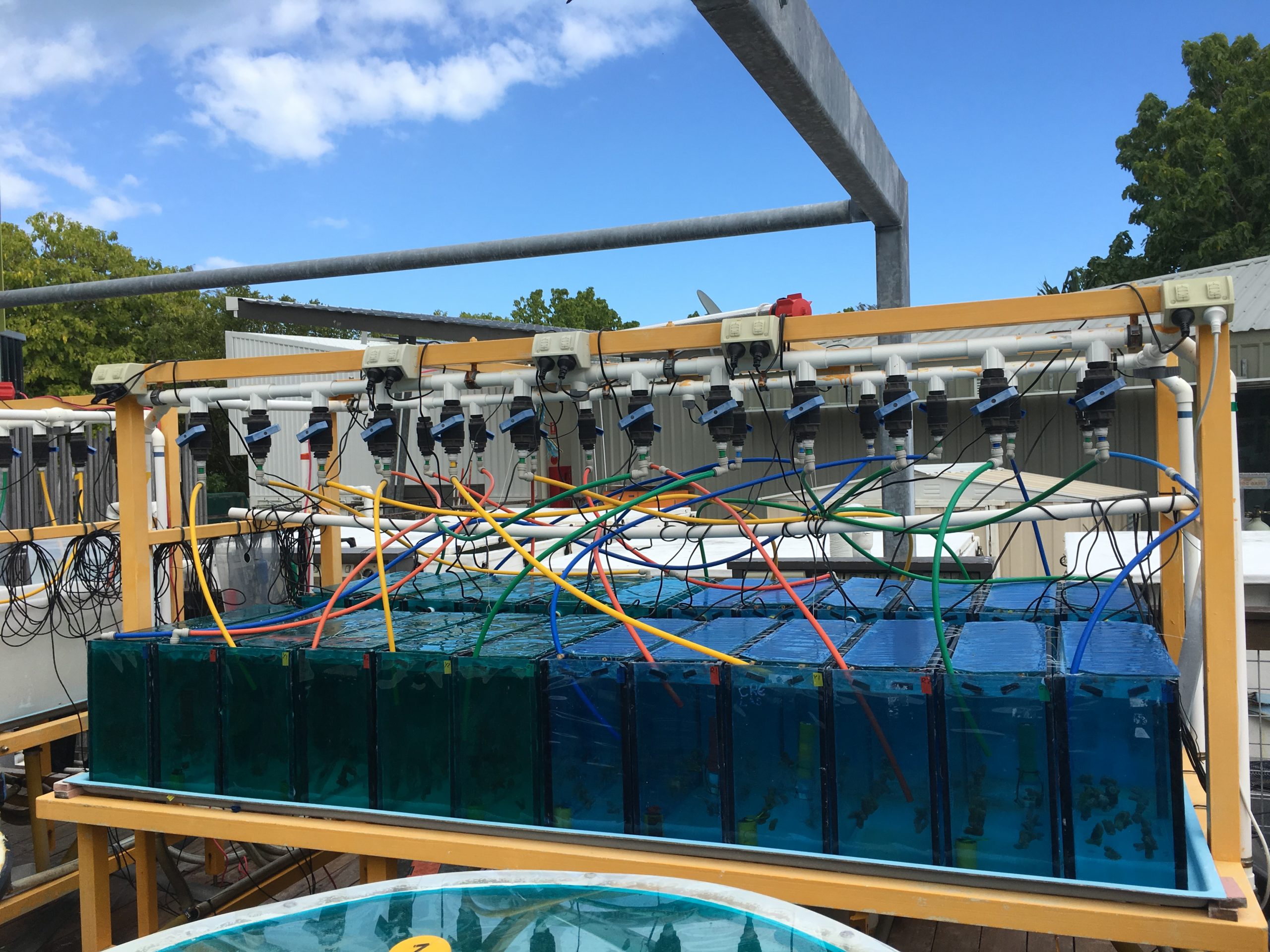
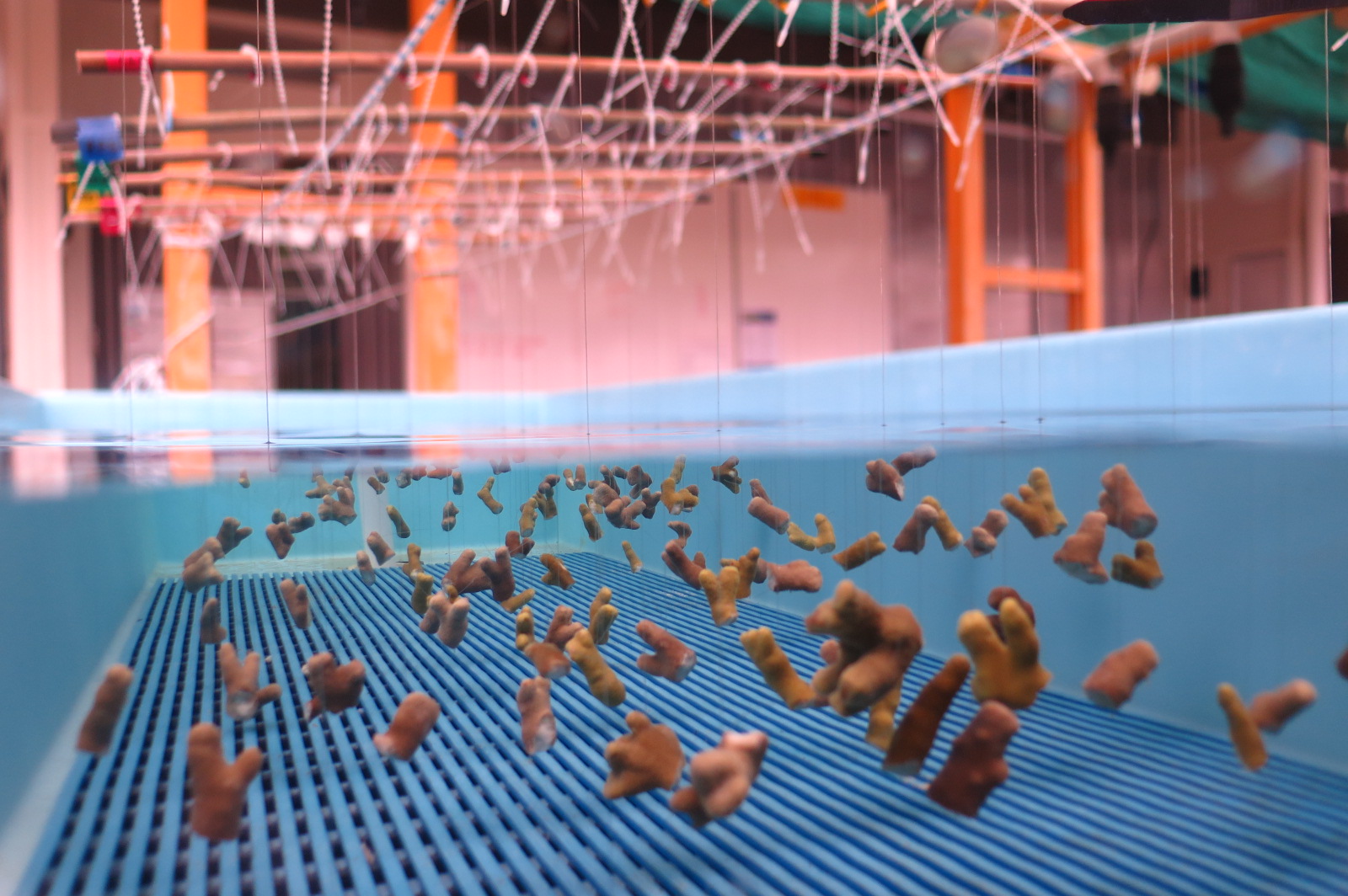
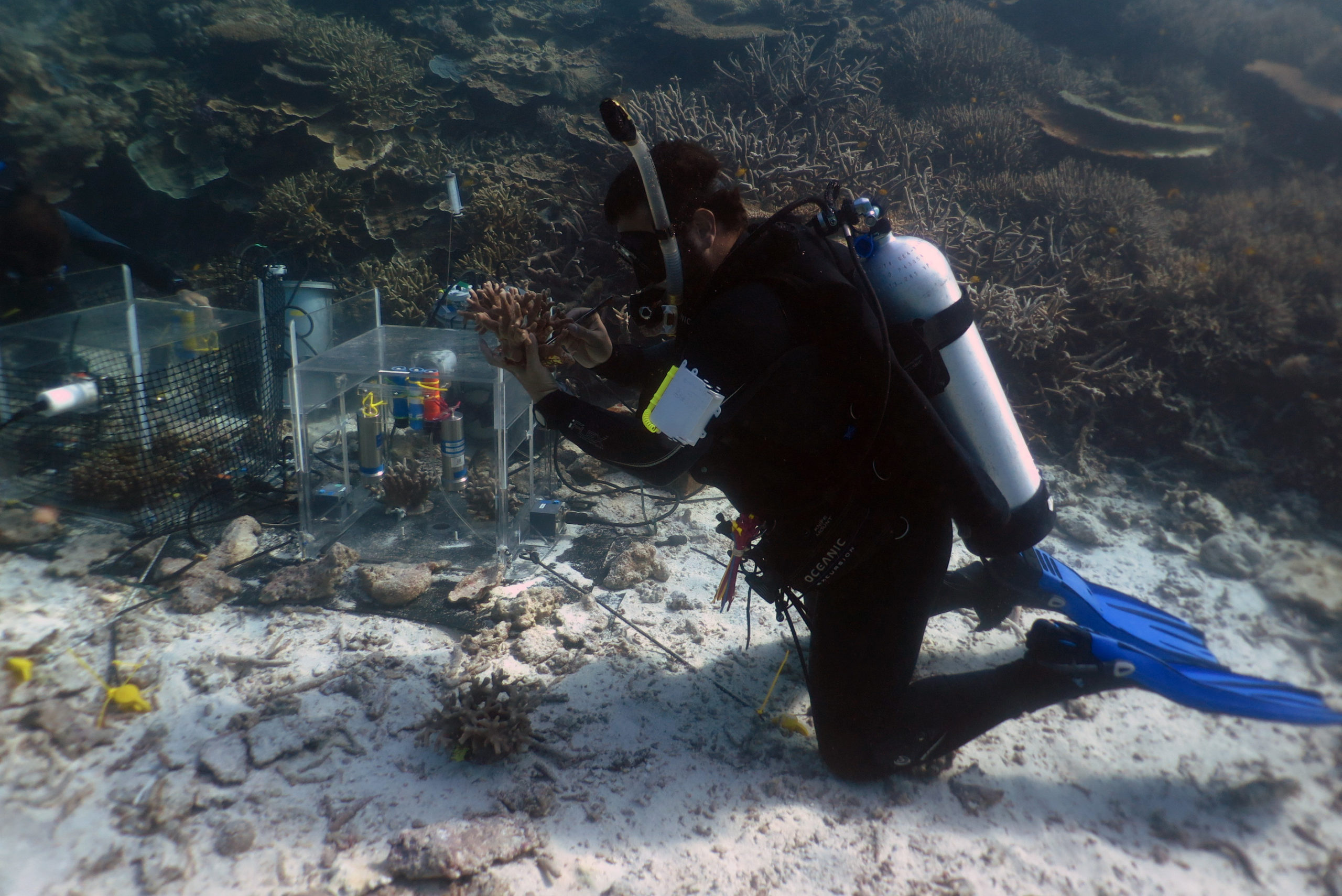


The hope for the coral reefs is going beyond finding “super corals” that would be able to resist bleaching and survive stressful thermal events but find corals that also can maintain a higher percentage of coral cover, by growing rapidly upwards to counter sea level rises, maintain high recruitment levels and increase their skeletal density to prevent breakages due to the wave energy that coral reefs might be facing in the future.







Matheus Mello-athayde
Current projects and collaborations:
- Porites cylindrica (Dana, 1846), a resilient coral found on the Great Barrier Reef: present and future coral physiology. in collaboration with Associate Professor Sophie Dove (UQ, Australia), Professor Ove Hoegh-Guldberg, Dr Selina Ward.
Sub–projects:
- Conservative growth by hard coral exposed to variable environments.
- Long term in-situ growth dynamics of reef-flat and reef-slope Porites cylindrica as a function of origin and reciprocal transplantation.
- Future scenario experiment, responses of Porites cylindrica coral to future warming and acidification scenarios under different lights.
- Responses of Porites cylindrica coral to future summer warming and acidification scenarios under different lights.
- Porites cylindrica genetic variation between Heron Island reef habitats. in collaboration with Dr Pim Bongaerts (California Academy of Sciences, USA)
- Importance of heterotrophic feeding for Porites cylindrica as an alternative survival strategy.
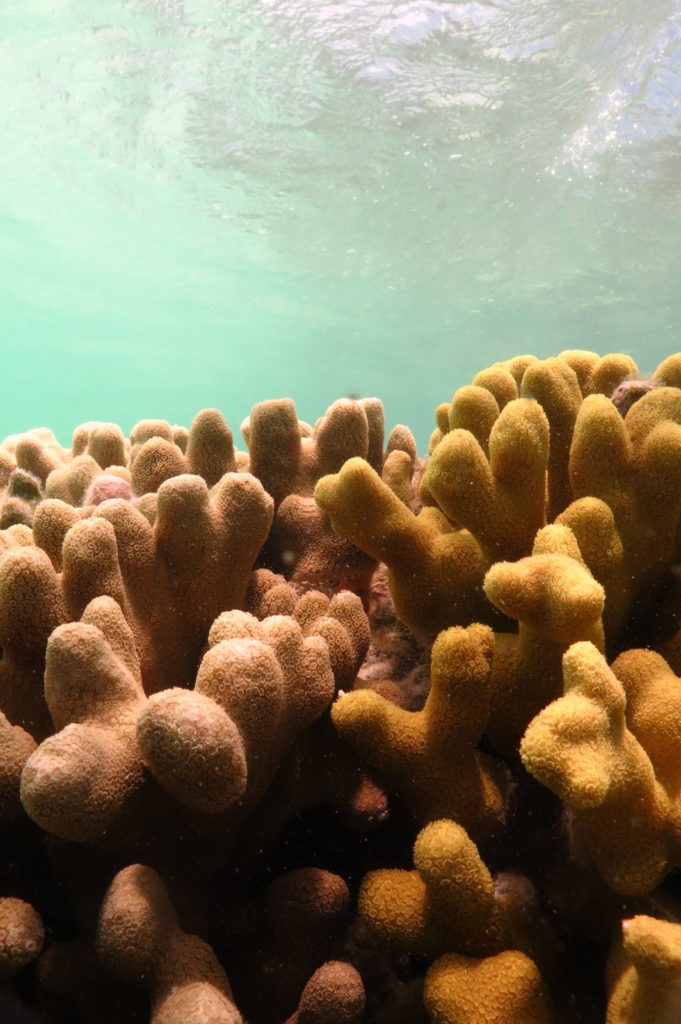
- “History of thermal stress impairs calcification and expansion in branching coral”, in collaboration with Professor Amatzia Genin (The Hebrew University, The Interuniversity Institute for Marine Science in Eilat, Israel) and Dr Kristen Brown (University of Pennsylvania, USA), Dr Veronica Radice (Old Dominion University, USA) and Associate Professor Sophie Dove (UQ, Australia).
- “Effect of diel pH variability on acidification resilience, calcification and tissue energetics in corals with contrasting environmental pH histories”, in collaboration with Dr Kristen Brown (University of Pennsylvania, USA), Associate Professor Sophie Dove (UQ, Australia) and A. Prof. Katie Barott (University of Pennsylvania, USA).
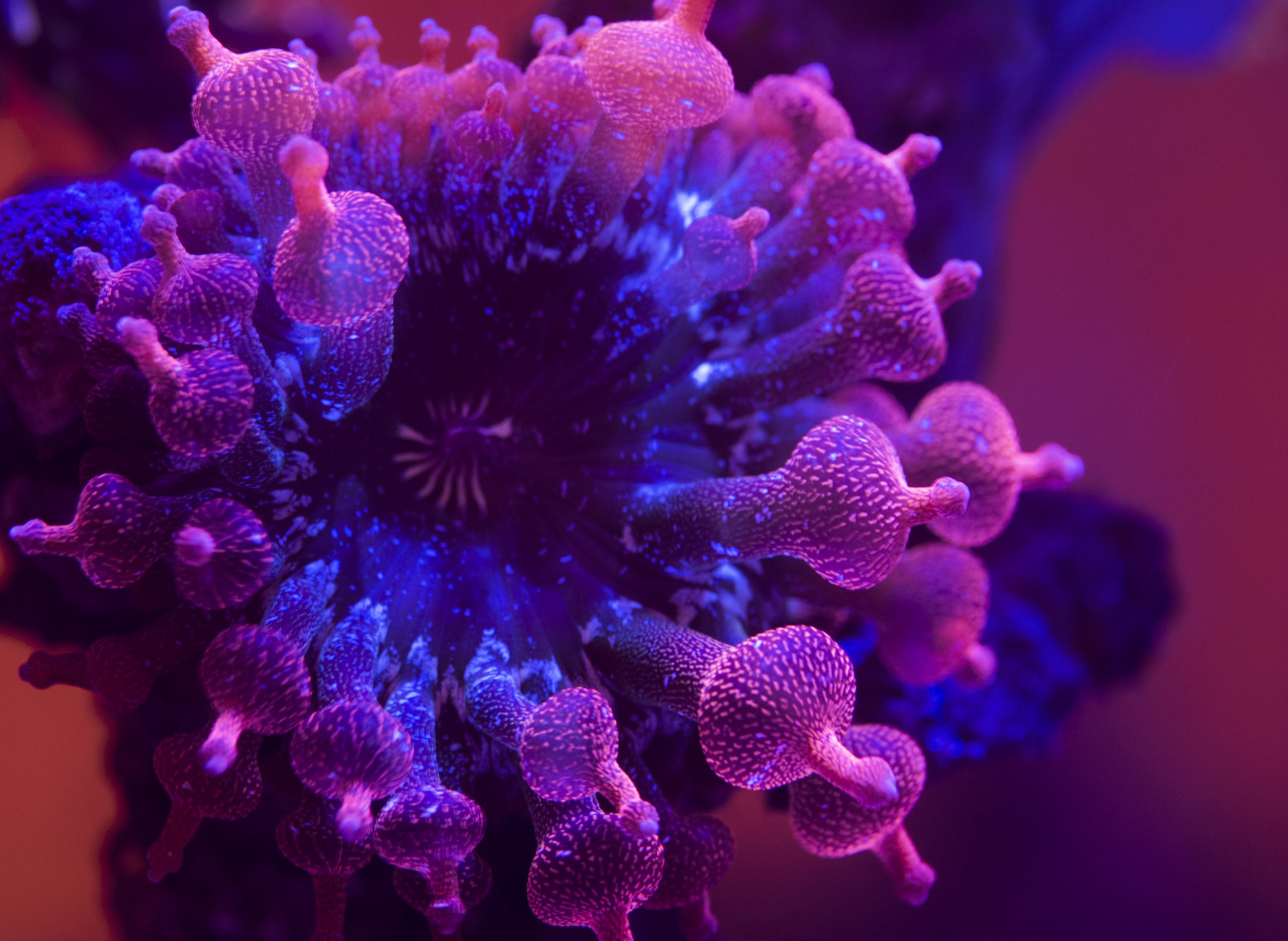
Matheus Mello-athayde
Main Collaborators
Associate Professor Sophie Dove (The University of Queensland, Australia)
Professor Ove Hoegh-Guldberg (The University of Queensland, Australia)
Dr Selina Ward (The University of Queensland, Australia)
Dr Kristen Brown (University of Pennsylvania, USA)
Professor Amatzia Genin (The Hebrew University, The Interuniversity Institute for Marine Science in Eilat, Israel)
Dr Veronica Radice (Old Dominion University, USA)
Dr Pim Bongaerts (California Academy of Sciences, USA)
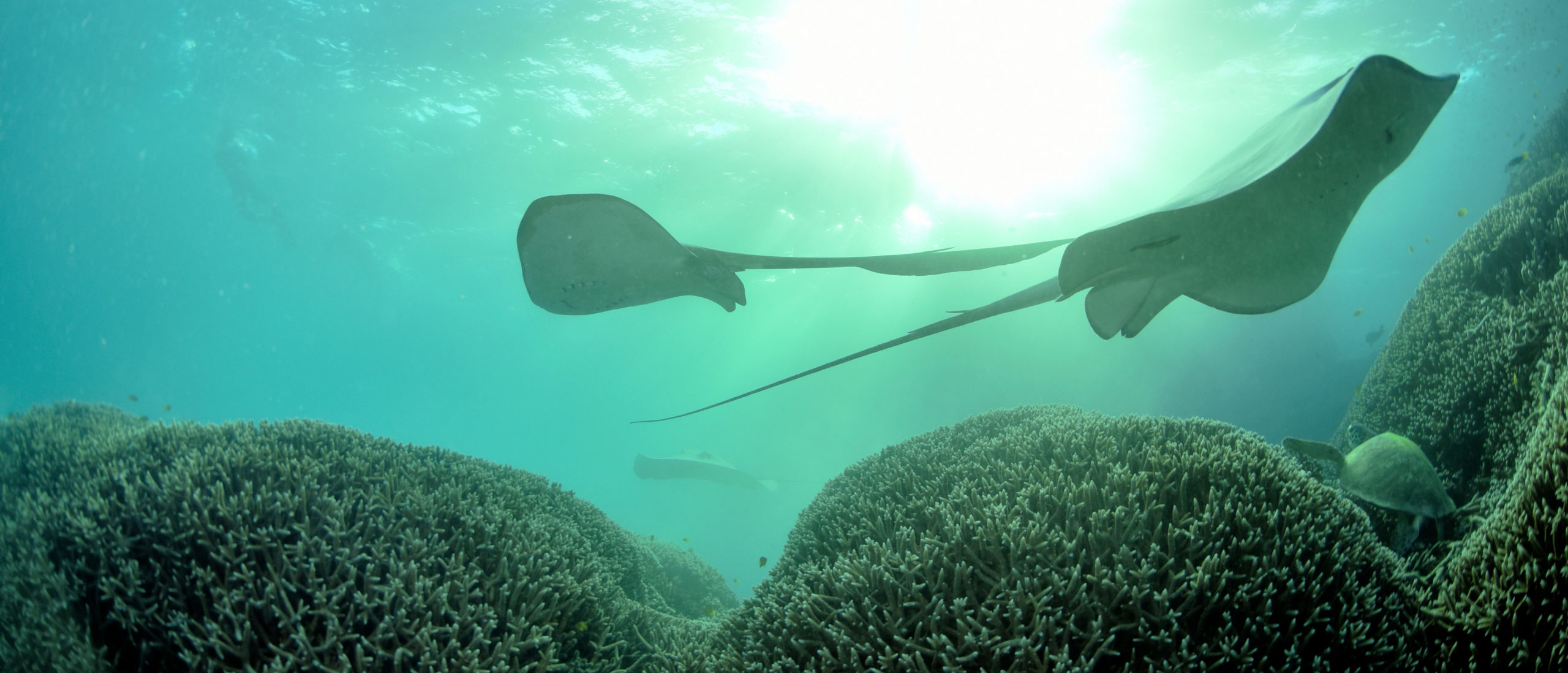
Matheus Mello-athayde
Publications
Brown KT, Mello-Athayde MA, Sampayo EM, Chai A, Dove S, Barott KL (2022) Environmental memory gained from exposure to extreme pCO2 variability promotes coral cellular acid–base homeostasis, Proceedings of the Royal Society B: Biological Sciences. https://doi.org/10.1098/rspb.2022.0941
Clark V, Mello-Athayde MA, Dove S (2022) Colonies of Acropora formosa with greater survival potential have reduced calcification rates. PLOS ONE https://doi.org/10.1371/journal.pone.0269526
Mello-Athayde MA (2021) Present and future coral physiology of the resilient coral Porites cylindrica (Dana, 1846). PhD Thesis. https://doi.org/10.14264/8f8e563
Rosic N, Rémond C, Mello-Athayde MA (2020) Differential impact of heat stress on reef-building corals under different light conditions. Mar Environ Res 158. https://doi.org/10.1016/j.marenvres.2020.104947
Fang JKH, Schönberg CHL, Mello-Athayde MA, Achlatis M, Hoegh-Guldberg O, Dove S (2018) Bleaching and mortality of a photosymbiotic bioeroding sponge under future carbon dioxide emission scenarios. Oecologia 187:25–35 https://doi.org/10.1007/s00442-018-4105-7
Fang JKH, Schönberg CHL, Mello-Athayde MA, Hoegh-Guldberg O, Dove S (2014) Effects of ocean warming and acidification on the energy budget of an excavating sponge. Glob Chang Biol 20:1043–1054 https://doi.org/10.1111/gcb.12369
Fang JKH, Mello-Athayde MA, Schönberg CHL, Kline DI, Hoegh-Guldberg O, Dove S (2013) Sponge biomass and bioerosion rates increase under ocean warming and acidification. Glob Chang Biol 19:3581–3591 https://doi.org/10.1111/gcb.12334
Athayde MAM, Borges RP (2009). Characterization of the macrobenthic community of the rocky shore of the Urubuqueçaba Island, Santos – SP (Brazil). Honours thesis – Revista Ceciliana.
Mello-Athayde MA, Hoegh-Guldberg O, Ward S, Dove S (2020) Conservative growth by hard coral exposed to variable environments. PhD thesis, in revision.
Mello-Athayde MA, Hoegh-Guldberg O, Ward S, Dove S (2020) Conservative growth by hard coral exposed to variable environments. In revision.
Mello-Athayde MA, Hoegh-Guldberg O, Ward S, Dove S (2020) Long term in-situ growth dynamics of reef-flat and reef-slope Porites cylindrica as a function of origin and reciprocal transplantation. In revision.
Mello-Athayde MA, Hoegh-Guldberg O, Ward S, Dove S (2020) Future scenario experiment, responses of Porites cylindrica coral to future warming and acidification scenarios under different lights. In revision.
Mello-Athayde MA, Hoegh-Guldberg O, Ward S, Dove S (2021) Responses of Porites cylindrica coral to future summer warming and acidification scenarios under different lights. In prep.
Mello-Athayde MA, Bongaerts P, Hoegh-Guldberg O, Ward S, Dove S (2021) Porites cylindrica genetic variation between Heron Island reef habitats. In prep.
Mello-Athayde MA, Hoegh-Guldberg O, Ward S, Dove S (2021) Importance of heterotrophic feeding for Porites cylindrica as an alternative survival strategy. In prep.
Other Publications, presentations and invited talks
Mello-Athayde MA, Ward S, Hoegh-Guldberg O, Dove S (2020) Conservative growth by hard coral exposed to variable environments: impact of reciprocal translocation between reef-flat and reef-slope. 14th International Coral Reef Symposium, Germany.
Mello-Athayde MA, Ward S, Hoegh-Guldberg O, Dove S (2018) Porites cylindrica (Dana, 1846), a resilient coral found on the Great Barrier Reef: present and future coral physiology. 91th Australian Coral Reef Society (ACRS) Conference, Exmouth, Western Australia.
Mello-Athayde MA, Ward S, Hoegh-Guldberg O, Dove S (2017) Calcification and production in two populations of Porites cylindrical (Dana, 1846): impact of reciprocal translocation. 90th Australian Coral Reef Society (ACRS) Conference, Townsville, Australia.
Mello-Athayde MA, Ward S, Hoegh-Guldberg O, Dove S (2016) Importance of heterotrophic feeding for Porites cylindrica as an alternative survival strategy. 13th International Coral Reef Symposium, Honolulu, USA.
Bongaerts P, Sampayo E, Mello-Athayde MA, Tonk L, Dove S (2012) SymbioGBR: a web-based database of Symbiodinium diversity and host associations on the Great Barrier Reef. 12th International Coral Reef Symposium, Cairns, Australia.
Maranho A, Mello-Athayde MA (2008) Monitoring, identification and quantification of sea turtle stranding in Baixada Santista, State of São Paulo in the period 2007-2008. 11° Marine Biology Symposium, Santos, Brazil.
Mello-Athayde MA, Giordano F (2006) Sea urchin as an environmental indicator- a tool to assess rocky shore ecosystems, IV Semana da Biologia Marinha e Gerenciamento Costeiro da UNESP, Sao Vicente, Brazil.
Mello-Athayde MA, Giordano F (2006) Sea urchin as an environmental indicator, IV Jornada Ceciliana de Iniciação Científica, Santos, Brazil.
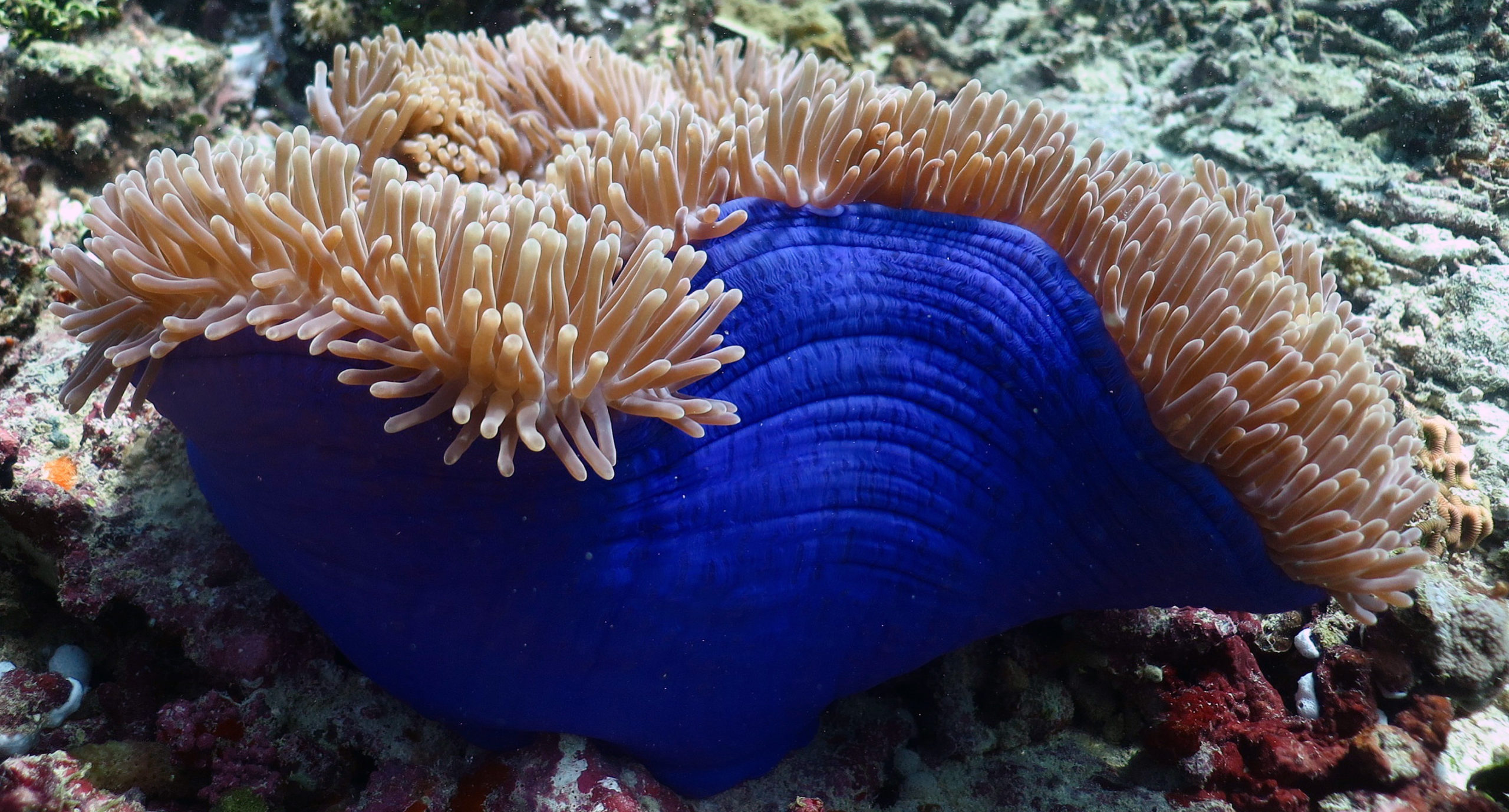
Matheus Mello-athayde
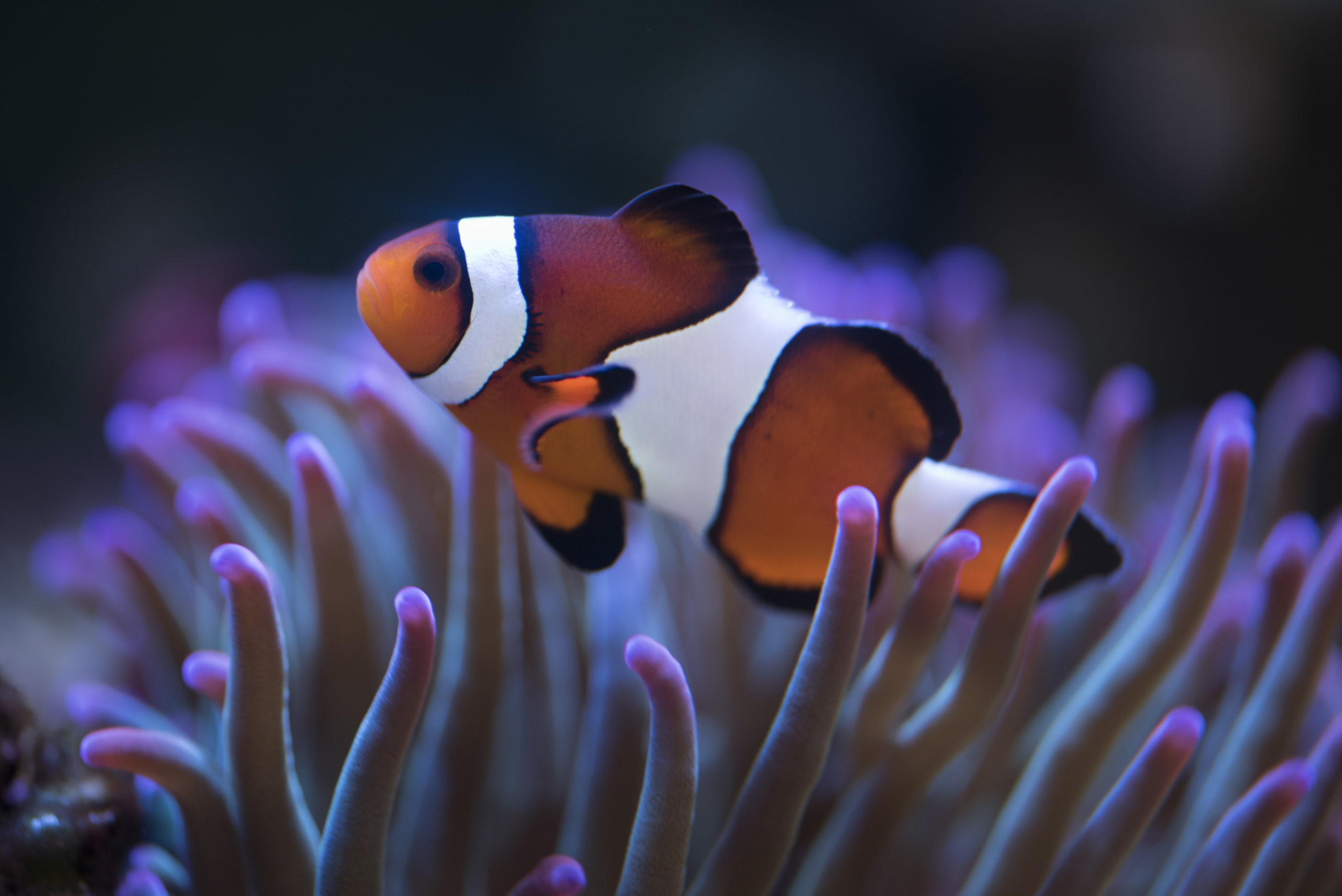
Matheus Mello-athayde
Contact
Matheus A. Mello-Athayde, BSc (Hons), PhD Candidate / Research assistant – CRE lab
ARC Centre of Excellence for Coral Reef Studies Link to student’s page
School of Biological Sciences, The University of Queensland, Gehrmann Laboratories (Bldg 60), Level 7, Research Rd. Brisbane, St. Lucia QLD 4072, Australia.
Ph: (+61) 7 0406 178 842 E: m.athayde@uq.edu.au / matheus.melloathayde@uqconnect.edu.au
